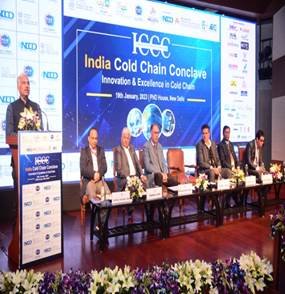By Gurmukh Roopra, Chief Executive Officer, Namdhari’s Group
Food safety is a combination of a wide range of academic fields ranging from chemistry, microbiology and engineering. These different schools of thought merge to make up the best practices in food safety & regulations that form the very basis of how food is grown, manufactured, processed and stored. It is a key indicator of the quality that is delivered and brings in a factor of accountability that consumes every aspect of the global food industry.
As the scale of deliverability of the global food supply chain increases so do the complexities. Added to that, is the underlying problem of lack of cold chains, testing infrastructure & technical know-how.
Every country has different regulatory authorities that define & govern food safety laws. While these bodies provide guidance, certification and auditing services for global food manufacturers, they are not responsible for the active enforcement of these laws. In order to sell their produce, organizations also have to adhere to the safety regulations & compliances enforced by the nation they are catering to.
Apart from these mandatory compliances that are governed by laws, there are certain best practices in food safety & quality assurance that should be undertaken at an organizational level too. It should encompass the development, organization & execution of a set of activities that are aimed at maintaining and improving the safety & quality of the products. Well-planned processes and thorough checks need to be established at essential touchpoints across the ecosystem, in order to provide safe products to consumers. The focus should be on creating a food safety culture by focusing on stakeholder awareness and engagement whilst complying with prescribed safety regulations to deliver maximum value to customers. From an economic point of view, the investment required to implement the highest standards of hygiene throughout the ‘seed to table’ supply chain would be far lower when compared to the losses incurred due to the lack of not having one.
Additionally, a strict traceability protocol, whereby products can be traced back to any stage, right up to the last grower must be set in place. This helps provide critical, reliable product information and guarantees product authenticity. Adhering to high standards of quality control by conducting analysis at every stage from raw material procurement to the finished product ensures the delivery of a superlative product. This can only be achieved if physical, chemical, and microbiological hazards are minimized and/or eliminated from the process.
Worldwide, most laws & best practices about food safety are based on two concepts: HACCP and GMP. HACCP (Hazard Analysis and Critical Control Points) lists down the steps that are necessary to ensure food quality & safety in an individual food production system. GMP (Good Manufacturing Practices) are global quality assurance guidelines for manufacturers to implement for producing high-quality, consistent products. These along with good hygiene practices should make up the cornerstones of any food safety policy. In addition to this, it is advisable to set up a food safety management team to conduct supplier audits along with effective pest control and environmental monitoring system to ensure complete protection. Quality checks before dispatch and testing of products in an accredited lab as per requirement by Food Safety and Standards Authority of India (FSSAI) on regular basis also help in maintaining consistency.
In India, regulatory bodies like FSSAI constantly introduce measures for food safety and quality. India’s food security is massive, given the huge population that the country has, and this would mean adopting sustainable and healthy farming practices to grow produce that is safe for consumption.
The ’farm to fork’ concept focuses on the fact that food safety should be conducted at every level -right from when the raw foods are being grown & produced up to the time, they reach the end consumer.
Technology plays a huge role in food safety, especially in the areas of research and development and seed management. For example, seeds that are high in genetic and physiological qualities result in higher yield and safer produce. The fast-growing middle class in India is constantly looking for food that is safe to consume and migrating more and more towards residue-free and organic produce. While residue-free farming basically means crops that are grown using organically produced fertilizers, with minimal synthetic content, organic produce is grown using biofertilizers obtained purely from plant and animal waste. Both farming methods contribute significantly to food safety and security. There are many tools also available in the market today to detect quality flaws, temperature fluctuations etc. that are being increasingly used to ramp up food safety practices.
In India, discrepancies exist in the adherence of best practices in food safety and compliance. However, these can be overcome by implementing best practices in manufacturing, production, implementing training programmes to raise awareness and investing in technology. We still have a long way to go, but food safety has become a focal point, especially after the pandemic.
As India’s only food integrated agri-business, Namdhari’s Group has implemented all of the above best practices and has made a substantial contribution to food safety in the country by ensuring that the end produce is not only nutritious but well within the maximum residue levels set by the FSSAI. It has invested resources in building a food safety culture by focusing on employee awareness & engagement to deliver maximum value to customers.
By Gurmukh Roopra, Chief Executive Officer, Namdhari's



